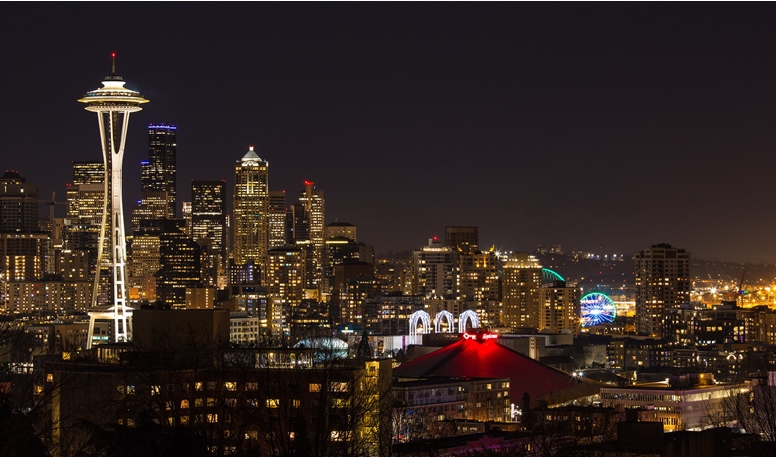
You don't have to live in Seattle long to recognize how different the city feels after sunset. Short winter days, slick streets, and active nightlife mean the most stressful part of a family outing is often the drive home. Coupled with headlines about rising crash numbers and safety concerns on public transit, it's understandable that some households are now allocating funds specifically for safer nighttime transportation.
When the Ride Home Feels Like the Real Risk
Road deaths across the United States have remained elevated since the pandemic years. In 2023, approximately 41,000 people lost their lives in traffic crashes nationwide, a figure that is still higher than pre-2020 levels. Washington state set a sobering record with 810 traffic fatalities in 2023, the highest total in more than three decades.
Families connect these statistics to their routines. Late dinners, sporting events, concerts, and sea-tac airport transfers are not just social outings; they require someone to drive while tired, in the dark, and on roads that are busier and more unforgiving.
A critical, yet often overlooked, fact is how sharply danger rises after dark. Only about 25% of all driving occurs after sunset, yet this period accounts for nearly 50% of all road deaths. In Washington, state analyses show that the overnight period contributes a disproportionately high share of fatal crashes and the majority of deadly collisions involving pedestrians.
Amplified Risks on Seattle Roads
Seattle's unique environment adds several factors that heighten these national trends:
- Weather and Visibility: The city averages roughly 150 days of rain annually. This means wet pavement, glare from headlights, and standing water are constant challenges, particularly during the fall and winter.
- Limited Daylight: In December, sunset occurs shortly after 4:20 p.m., ensuring that even a simple after-school activity or early commute home takes place in darkness. These crowds already busy streets with commuters, new drivers, service workers, and visitors simultaneously.
- Terrain: Seattle’s steep terrain in neighborhoods like Queen Anne and Capitol Hill becomes hazardous when roads are slick. Hills reduce visibility and significantly increase braking distances, making mistakes harder to correct in low light.
Furthermore, pedestrian deaths in Washington have reached record highs, with a large majority of fatal incidents occurring after dark. For parents escorting children across busy intersections or poorly lit sidewalks, the sense of exposure is immediate.
Professional Drivers as a Solution for Peace of Mind
These combined risks explain why many households now treat safe transportation as a dedicated budget line item, similar to purchasing travel insurance.
The demand for trusted private transportation has grown beyond special events. Reputable Car Services provide several key advantages after dark:
- Vetting and Reliability: They offer licensed Chauffeur Service and can be researched in advance via reviews, licensing, and insurance details.
- Door-to-Door Service: This eliminates the need for family members (especially children or older relatives) to walk across busy roads or navigate large, unlit parking structures.
- Professional Fleet: Vehicles are maintained to a professional standard, and many operators, like Seattle Black Limo, provide specific accommodations such as child seats, boosters, and extra luggage space.
- Convenience: Booking an Airport Car Service in advance eliminates guesswork and stress upon a late arrival at Sea-Tac, particularly when the weather is poor and everyone is tired.
The Teen, Transit, and Theft Equation
For families with teenagers, the transportation dilemma is complex. Motor vehicle crashes remain one of the leading causes of death for young people aged 16 to 19. Their fatal crash rate is several times higher per kilometer driven than that of older adults, with many deaths happening between late evening and early morning.
While parents are wary of letting new drivers navigate dark, rainy, and hilly nightlife traffic, alternatives pose their own worries. National data shows many parents worry about a ride-share driver's safety record, potential impairment, or other risks to their children.
Though Seattle's transit agencies have invested in security and reported lower violent crime in certain downtown areas, high-profile assaults and confrontations still make news. A single unsettling incident is often enough for a family to decide a trusted, personally vetted service is necessary for late-night trips.
Another significant concern is the vehicle itself. Washington has seen high rates of auto theft in recent years. This forces families to constantly calculate the risk: Should they use a dimly lit, low-cost lot, or pay a premium for a monitored, secure garage several blocks away? The cost of stress and a high insurance deductible adds to the "hidden cost" of leaving a car parked overnight.
Summary: Budgeting for Safety
Setting aside money for reliable transportation is a priority-driven choice. Some families budget for one or two professionally driven trips monthly, reserving them for high-risk combinations such as late-night concerts on a stormy evening, or teen gatherings where alcohol might be present. Others integrate the service into travel plans, factoring in the cost of a black car from the airport or a private late-night ride from an event.
When compared against parking fees, fuel costs, ride-share surges, and the immeasurable cost of worry, the premium for a professional driver is often easily justified.
While improved infrastructure and stronger enforcement of impaired driving laws remain long-term necessities, individual families are making practical, immediate choices. In a city where rain is frequent, daylight is scarce, and traffic numbers are high, budgeting for a safer ride home is becoming an integral part of family care.
Media Contact
Company Name: Seattle Black Limo LLC
Contact Person: Mohammed Yassin
Email: Send Email
Country: United States
Website: https://www.seattleblacklimo.com/




